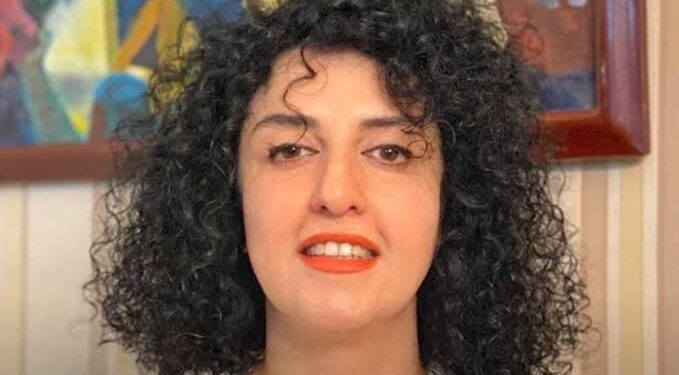Narges Mohammadi, a renowned human rights advocate and 2023 Nobel Peace Prize recipient, has been granted a 21-day temporary medical release from Evin Prison, where she has been incarcerated for her activism. This release comes after she underwent surgery for a suspected cancerous lesion in her leg, a health crisis that has worsened during her years of imprisonment. Despite this, her family and legal team had requested a three-month period for her recovery, which was denied by authorities.
Currently serving multiple sentences totaling over 30 years, Mohammadi has faced continuous repression by the Iranian regime for her advocacy for women’s rights and political freedoms. Over the years, she has been repeatedly denied adequate medical care, which has further deteriorated her health.
Protesting Gender Apartheid from the Outside
Even during her time in prison, Mohammadi’s resolve to protest the systemic oppression faced by women in Iran has remained steadfast. During her brief medical leave, she has made it clear that her activism will not be silenced, holding up a photograph of Mahsa Jina Amini, the 22-year-old Iranian woman who tragically died while in custody of the morality police. Amini’s death sparked widespread protests in Iran, and her memory has become a symbol of resistance against the oppressive regime.
In addition to her display of solidarity with Amini, Mohammadi wrote “no to gender apartheid” on her palm, a direct reference to the regime’s systemic and institutionalized discrimination against women. As a signatory of the End Gender Apartheid campaign, she has continuously called for the international recognition of gender apartheid as a crime against humanity, a charge she believes should be levied against the Iranian authorities.
Enduring Commitment to Human Rights
Despite the harsh conditions she faces in prison, Mohammadi’s unwavering commitment to human rights advocacy is evident. She has become one of the most prominent voices calling for the recognition of gender apartheid as a violation of fundamental human rights. Her case highlights the stark contrast between the Iranian regime’s oppression of women and the global calls for justice and equality.
Though her 21-day release offers a brief respite from the harsh realities of prison life, it remains unclear what the future holds for Mohammadi as she continues to fight for freedom and equality in a country where these ideals are still fiercely contested.
Related Stories:
Iranian Rights Advocate Narges Mohammadi Wins 2023 Nobel Peace Prize: A Triumph Over Adversity
Afghan Teen Nila Ibrahimi Wins International Children’s Peace Prize for Advocating Girls’ Rights
Imprisoned Nobel Laureate Narges Mohammadi Launches Hunger Strike Over Denied Medical Care
















